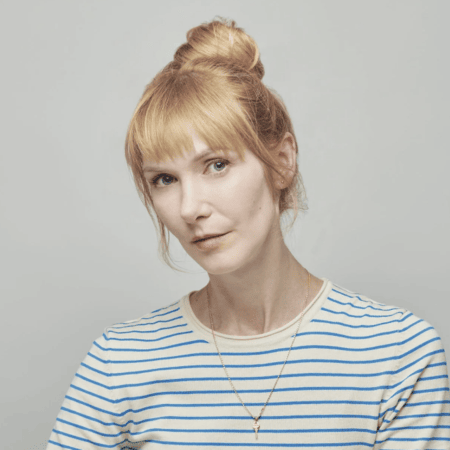(courtesy Ultimo Press)
One of the ways we survive the many vagaries of life is to tell ourselves stories; they’re usually self-serving storylines that reinforce the internal narrative we have long told ourselves to help us make sense of events that would otherwise defy easy categorisation.
Are they always truthful? To an extent, insofar as they are usually formed around something that actually happened but memories are fickle and famously uneven things, and as noted, serve to reinforce a particular line of thinking that aligns with the story that brings some peace in a world that barely knows what it is, much less how to give it to us.
In Foreign Country by Marija Peričić, we are party to an arrestingly moving exploration of what happens when a memory of a particular event collides with a long-denied, though not deliberately so, reality.
Eva Novak has lived in Germany for many years, having fled there in the almost immediate aftermath of her infant daughter Gracie’s death in a car accident which also caused Eva’s sister Elizabeta a great deal of physical, emotional and mental harm.
Unable to cope with the loss of her precious daughter, she flees overseas only returning to Australia at Elizabeta’s urgent entreaty and the arrival of an airline ticket which speeds her back to country Victoria and the ramshackle but character-full home her artistic sister lives in.
Or rather, lived in, because Eva arrives at Elizabeta’s place on a remote country property with a kilometre-long dirt driveway which turns to gluggy mud in the rain only to find her dead in her bed.
El didn’t call again, and when I dialled Peter, he didn’t answer.
Later, when I was in the shower, and after I’d climbed into bed, in my mind I could still see the blinking light of the answering machine, like a bright green eye opening and closing, the rhythm of it loud like my heartbeat.
A month later the airline ticket arrived.
Overwhelmed already at arriving back in a country that harbours her greatest loss and pain, and no closer to resolving the grief around it – her German boyfriend brutally but correctly says that she has shut down and reveals nothing about herself; her grief is suppressed, almost as if it’s preserved in acid, and not even remotely close to having been dealt with – Eva is even more overcome.
But as the executor of her sister’s estate, so she subsequently discovers, she has no choice but to clean out the house and get it ready for sale.
It’s a Herculean task at the best of times, as anyone who has ever cleared out a loved one’s home will grimly attest, but in this case, even more so because Elizabeta was not exactly prone to organising her life in any sort of linear or ordered fashion.
But there are certain documents Elizabeta’s lawyer needs to finalise the estate, and so Eva has no choice, far from home and with her boyfriend ever more angry and upset with her, to plough through the mounds of paperwork and casually collected together odds and ends in the hope that the required documentation will emerge from the chaotic morass.
It’s an arduous task, but as Foreign Country progresses in ways thoughtful and nuanced, with an almost real-time beat to the passage of time, Eva is given a rare and unasked for opportunity to know only get to know her sister better but to come to grips with the truth of what really happened on the day Gracie died.
(courtesy official author site)
She resists this assault at first on the internal narrative she has crafted so that she can live with the still simmering grief over her daughter’s death and tries to find ways to bolster its truthfulness, or at least the version of the truth she tells herself.
But as she digs down literally into messy piles of detritus and into the frighteningly unexamined depths of her fractured and unrepaired psyche, she is forced to reckon with the fact that her troubled history with her sister may be a product of her own creation and may not have any basis in reality.
If that’s true, and it appears to be increasingly the case as Foreign Country moves back and forth through time and remembered events good and bad, then Eva is guilty of doing her sister a disservice, one that cannot be atoned for now she is dead.
It’s an horrendously difficult road to travel, and you can well understand why Eva is reluctant to go down it but once embarked upon it, and she really has no choice but to do so, why she fights any sense that her self-justifying internal storyline could in any way be in error.
Foreign Country asks us again and again to consider whether what we recall about the past or what we think we know about those love can be trusted, and if perhaps, we need to revisit long-held and cherished thoughts about the past that may not be true at all.
I TRIED to visit El. I ddi visit, I did go to the Epworth once. But I only made it as far as just inside the main entrance. Then I couldn’t go any further.
It’s a lot to ask of anyone, and honestly, you can well understand, if you have ever had to challenge and interrogate the past, why Eva fights against a slew of realisations about a past that comes to bear little resemblance to her recollection of it.
She knows deep down, like we all do, that the truth will set us free, but the reality is that embracing that truth will mean we have to abandon all sorts of ideas and feelings that have brought comfort and solace, even if, at their core, they have been slowly corroding us from the inside out.
We can feel the corrosive damage taking place and we know we need to stop if we are to be happy, or at least content again, but Eva finds it hard, and understandably so, to take the steps that will heal her because it means so much of her life over the last decade or so has been lived on a self-protective lie.
A lie that cannot be undone with Elizabeta gone, and yet with the most obvious way of redress closed to her, Eva finds some way to embrace the truth of what really happened on that fateful day and to come to a point where maybe she can move on, damaged yes and not fully healed, but beyond the pain, grief, and loss and with the past as healed as it will get, ready to better handle whatever lies ahead for her.

